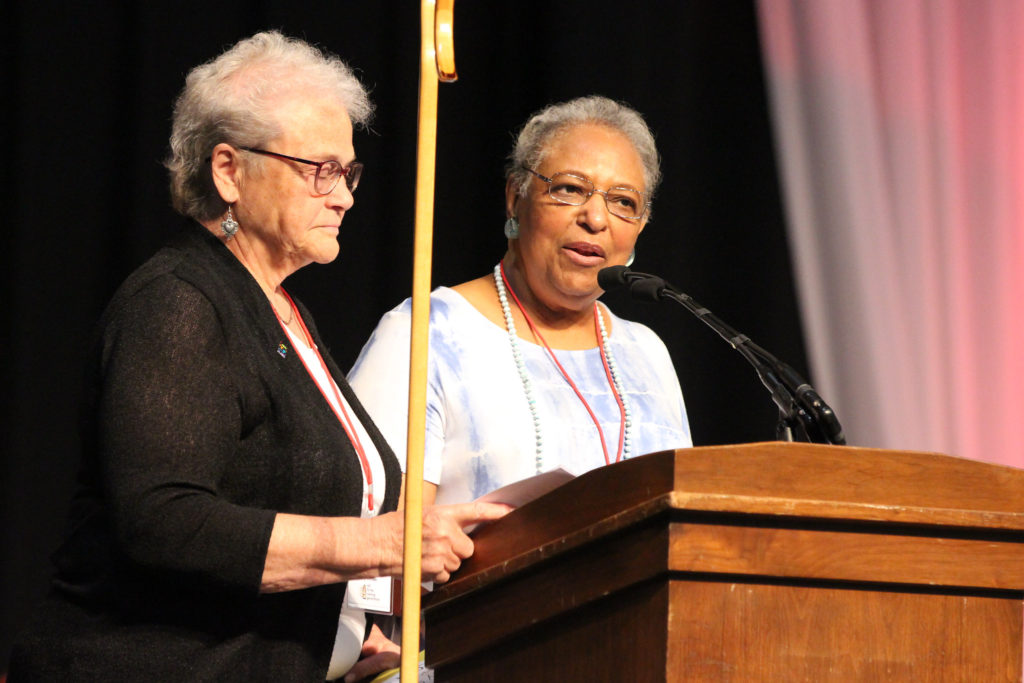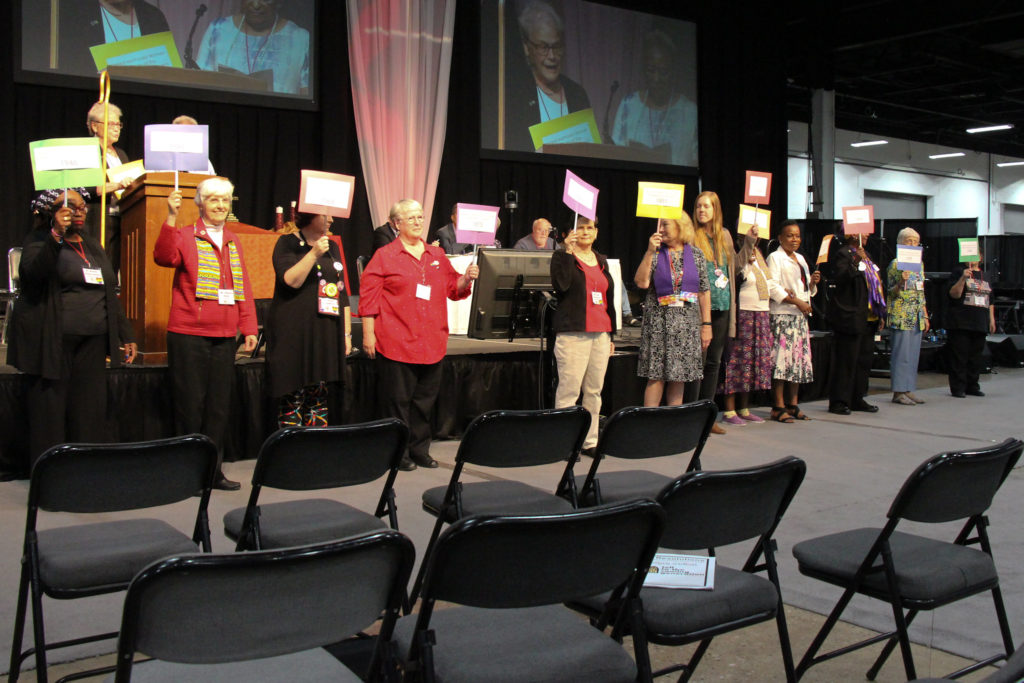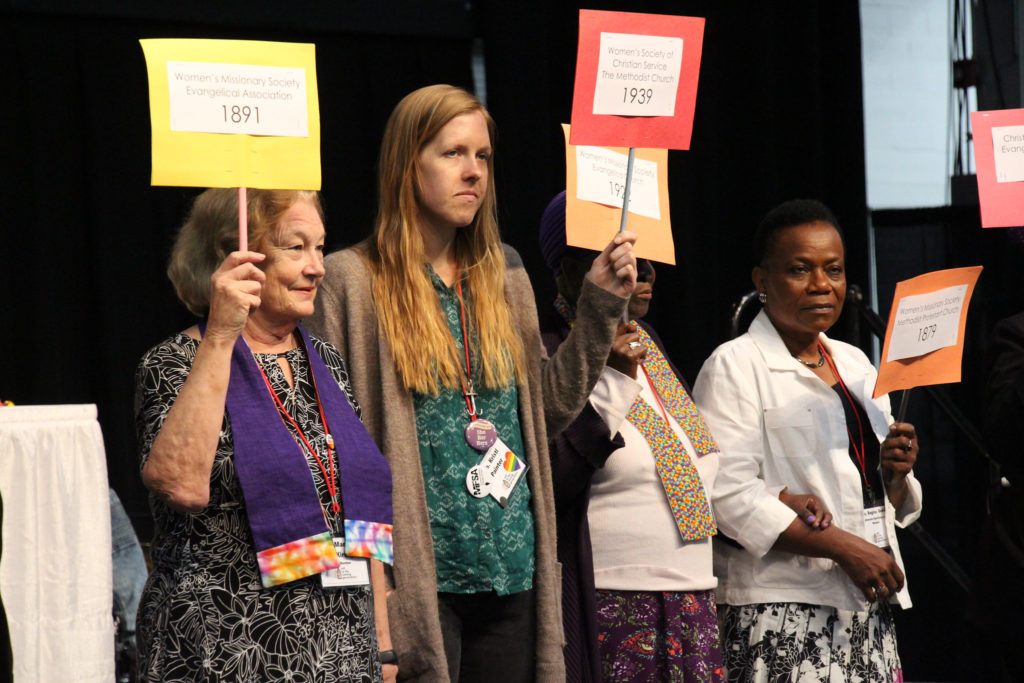Annual Conference
June 13-15, 2019
United Methodist Women
Presenters: Gladys B. Hubbard and Susan D. Dziuk

Gladys: Greetings! This is a very special time for us. United Methodist Women is celebrating 150 years in mission!
Susan: Our foremothers began our work in mission 150 years ago. We trace our beginning to March 23rd in 1869 on a stormy night in Boston when six women decided they needed to do what the men could not – provide education and health care to the women and girls of India. As the needs grew, the work of women in mission grew.
Gladys: United Methodist Women traces its roots through twelve organizations in denominations that have joined to become the United Methodist Church. (show sign) United Methodist Women is now an agency of the United Methodist Church, but we stand on the shoulders of these organizations.
(12 sign holders come to front from different places in the room)

Susan: We are so Godly proud to be part of this legacy of women who for 150 years have looked out at the world and caught God’s vision of love. Women who have responded with:
Support for more than 90 national mission institutions including community centers, schools, and residences for women survivors of domestic violence and their children
Support for 121 international mission programs in 110 countries like
- Hospitals and school
- Scholarships for higher education
- Income generating skills training for women and youth
- Support of the work of our Central Conference United Methodist Women sisters in Africa and Asia
Gladys: Thanks be to God for the work of United Methodist Women!
We celebrate the six women who had faith that God would provide personnel and monetary support to meet the need for education and medical care for women in India.
We celebrate the continuation and expansion of ministries that have given hope to women, children and youth locally and globally for one hundred and fifty years.
We celebrate the hundreds of women who have made commitments of service based on love for women, children and youth following the example of Jesus Christ.
We celebrate this faith, hope and love demonstrated through action for one hundred and fifty years.

Susan: We are thankful for United Methodist Women members whose circles of loving action pulled us in and enriched our lives with friendships, community and opportunities to join God’s mission in ways beyond our wildest dreams. We love being members of United Methodist Women.
Gladys: United Methodist Women is vital to the ministry of the church. We are concerned about the churches that do not have a unit of United Methodist Women. Without the support of United Methodist Women, work with women, children and youth all around the world is in danger. As we honor women who with foresight and commitment began ministries that have changed the world, we encourage all women of the Eastern Pennsylvania Conference to join us in the challenge to continue ministries locally and globally to assure that women, children and youth experience the wholeness of life that Jesus proclaimed.
Susan: The best way to honor our foremothers and the women who have continued the history of women in mission is to make more history of women in mission – and that’s what United Methodist Women is doing today.
Gladys: At this pivotal time in the church, and in our nation, United Methodist Women stands as a place to belong for all women committed to loving and serving God by turning faith, hope and love onto action for women, children and youth. United Methodist Women is for you!
Susan: We invite you to come and join us! This short video will tell you why!
